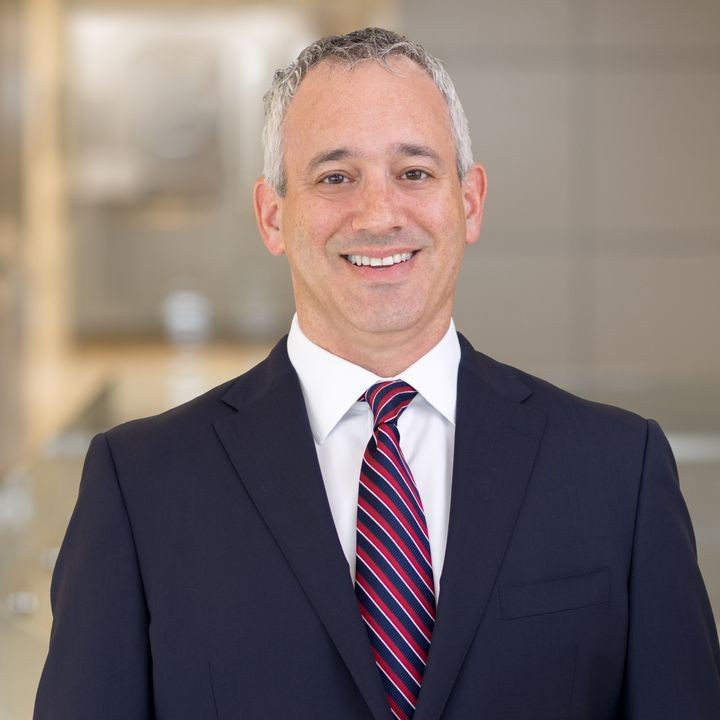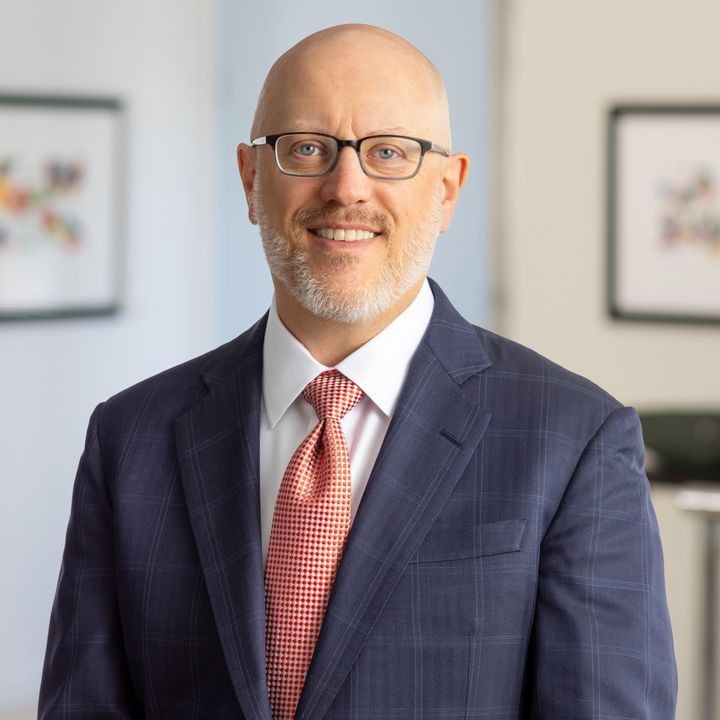Health Care Fraud and Abuse
Overview
Crowell & Moring's health law practice includes nationally recognized health care fraud counselors, and civil and criminal litigators. Our team is made up of members of our Health Care, White Collar and Regulatory Enforcement, and Government Contracts practice groups, who together establish the firm as a formidable advocate for health care clients grappling with fraud and abuse issues. We provide effective and experienced services to clients dealing with the complex and potentially devastating risks associated with fraud and abuse investigations and prosecutions. Our firm's presence in Washington, D.C. provides us ready and regular access to key federal enforcement agencies such as the U.S. Department of Health and Human Services' Office of the Inspector General (HHS-OIG) and the Department of Justice (DOJ), while our intimate understanding and experience in dealing with the federal False Claims Act, the Anti-Kickback Statute, and the Physician Self-Referral Law (or Stark law) permits us to advise and counsel clients on these substantive areas, regardless of location, through lawyers based in our Los Angeles, San Francisco, Orange County and New York offices.
Contacts
Insights
Client Alert | 6 min read | 11.19.25
The facts before the Third Circuit in the recently decided case of Patel v. United States illustrate how parties can put themselves in a bind if they make factual admissions when resolving a criminal case involving fraud on the government while not simultaneously resolving the government’s civil claims under the False Claims Act (FCA) for the same underlying conduct.
Firm News | 11 min read | 06.05.25
Speaking Engagement | 10.28.24
Innovative Health Care Technology Companies: Compliance Challenges and Managing Risk
Firm News | 9 min read | 06.06.24
Representative Matters
- Lead antitrust counsel for Coventry Health Care, Inc., in its pending $7.2 billion acquisition by Aetna Inc. The combination of two of the largest 10 commercial health insurance companies in the country is subject to antitrust review by the Department of Justice Antitrust Division.
- Work with 19 hospital regional health care system on legal and operational compliance and defense against government investigations concerning federal health care program anti-kickback statute and regulations, the federal prohibition on physician self-referrals (the "Stark Law"), related civil monetary penalty laws, and Medicare billing rules and regulations, e.g., provider-based billing requirements and hospital outpatient supervision requirements.
- Represented Health Net in renegotiation of its pharmacy benefits management arrangements with Caremark CVS and the $160 million sale of Health Net's Medicare Prescription Drug Plan business to Caremark CVS and in securing clearance from the Department of Health & Human Services Centers for Medicare & Medicaid Services and the Antitrust Division of the Department of Justice.
- Successfully defended Health Net against a putative class action complaint alleging a price-fixing conspiracy under California's Cartwright Act and Unfair Competition Law. Plaintiffs, a group of independent retail pharmacies, alleged that Health Net had entered into a conspiracy to not reimburse patients or their pharmacies for generic versions of Lipitor. Crowell & Moring convinced the plaintiffs to dismiss Health Net without any compensation or remedy, before filing of a motion to dismiss, based on a presentation of facts demonstrating that our client had not engaged in the alleged anticompetitive misconduct.
- Defense of client in the first action by a State Attorney General under 2009 amendments to the HIPAA statute. The Connecticut Attorney General sued our client based on the disappearance of a portable disk drive from a Connecticut facility containing 32 million pages of patient information. After months of negotiation, a favorable settlement was reached for the client, acknowledging the measures that our client had voluntarily taken to protect the identity and credit of its members.
- Internal review of a major national health insurer's compliance with the new medical loss ratio (MLR) requirements under the Affordable Care Act health reform law.
- Representation of an attorney and law firm that are under investigation by the Department of Justice for his/their role in issuing a legal opinion to a hospital client concerning the legality of a hospital-physician group relationship. The government asserts separately that the hospital-party to the hospital-physician group arrangement violated the Stark Law and the False Claims Act, and that the attorney and law firm who represented the hospital in this matter are also potentially liable for these violations. The focus of the Department of Justice on whether an attorney's legal opinion can be a False Claims violation raises unprecedented issues.
- Representing a hospital responding to a federal investigation into whether the hospital paid kickbacks to cardiologists in exchange for patient referrals through free rent, higher than appropriate medical director compensation or other measures.
- Representation of a major medical device manufacturer in responding to a whistleblower complaint alleging that the company paid kickbacks to certain "group purchasing organizations" (GPOs) in order to qualify its medical devices for eligibility for purchase by the GPO's hospital members. The whistleblower alleged that the numerous hospitals who bought these products filed false claims for Medicare payment when they certified on their claims for payment that the services for which payment was sought were provided "in accordance with applicable law."
- Counsel a large health insurer regarding a possible defined contribution health arrangement for a Fortune 100 company, addressing the meaning of "insurance" for purposes of Internal Revenue Code section 105 and various nondiscrimination concerns.
- Provide counsel to large insurers, trade associations, and third-party administrators regarding implications to their business of health reform legislation, the Patient Protection and Affordable Care Act (PPACA). Engage in advocacy before various federal agencies (including the Departments of Treasury, Labor, and Health and Human Services) on behalf of trade associations and other entities with respect to PPACA.
- Obtained dismissal of patent infringement claim against our clients, one of the world's largest generic drug manufacturers. On appeal, the Federal Circuit agreed with the district court that the FDA had only approved one of the drug's three effects, contraception, which was not protected by any patent. This decision allows generic drug companies to enter the market with a generic – and substantially less expensive – version of a beneficial drug, but also provides guidance to all pharmaceutical companies on the interplay between the scope of FDA approval for a drug's use and the enforcement of patents relating to the use of the drug, in particular whether a method-of-use patent listed in the FDA's "Orange Book" is properly asserted in a Hatch-Waxman litigation against a generic applicant.
Contacts
Insights
Client Alert | 6 min read | 11.19.25
The facts before the Third Circuit in the recently decided case of Patel v. United States illustrate how parties can put themselves in a bind if they make factual admissions when resolving a criminal case involving fraud on the government while not simultaneously resolving the government’s civil claims under the False Claims Act (FCA) for the same underlying conduct.
Firm News | 11 min read | 06.05.25
Speaking Engagement | 10.28.24
Innovative Health Care Technology Companies: Compliance Challenges and Managing Risk
Firm News | 9 min read | 06.06.24
Insights
California State Whistleblower Claim Nets $30 Million Anti-Kickback Settlement from Life Sciences Company
|07.25.16
Crowell & Moring's Whistleblower Watch
High Court Recognizes FCA Liability Based on Implied Certification
|06.24.16
Crowell & Moring's Whistleblower Watch
ACO Compliance Is Spotty as Waiver Rule Is Extended; COs Navigate Other Challenges
|11.03.14
Report On Medicare Compliance
- |
03.19.24
Crowell & Moring’s Health Law Blog
- |
10.04.19
Crowell & Moring's Health Law Blog
Sunshine Act/Open Payments Regulatory Changes in the 2020 Physician Fee Schedule
|08.12.19
Crowell & Moring's Health Law Blog
Highlights from the Comments on the Proposed Elimination of Discount Safe Harbors for Rebates
|04.10.19
Crowell & Moring's Health Law Blog
GAO and CMS Seek Increased Scrutiny on Medicaid Managed Care Organizations
|10.02.18
Crowell & Moring’s Health Law Blog
- |
08.25.16
Crowell & Moring's Health Law Blog
Mount Sinai Health System to Pay $2.95 Million in 60-Day Overpayment FCA Settlement
|08.25.16
Crowell & Moring's Health Law Blog
Privacy & Cybersecurity Weekly News Update – Week of July 31
|08.11.16
Crowell & Moring's Data Law Insights
Medicaid Managed Care Final Rule: Prevention of Fraud, Waste, and Abuse
|08.04.16
Crowell & Moring's Health Law Blog
Professionals
Insights
Client Alert | 6 min read | 11.19.25
The facts before the Third Circuit in the recently decided case of Patel v. United States illustrate how parties can put themselves in a bind if they make factual admissions when resolving a criminal case involving fraud on the government while not simultaneously resolving the government’s civil claims under the False Claims Act (FCA) for the same underlying conduct.
Firm News | 11 min read | 06.05.25
Speaking Engagement | 10.28.24
Innovative Health Care Technology Companies: Compliance Challenges and Managing Risk
Firm News | 9 min read | 06.06.24















